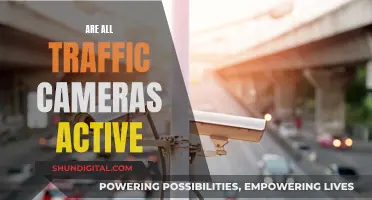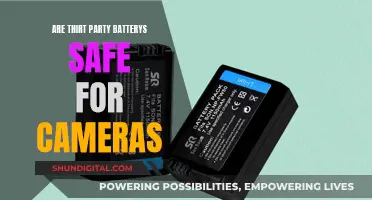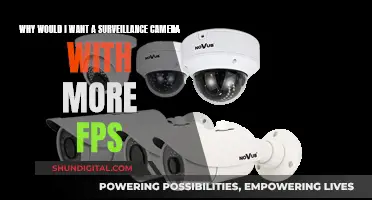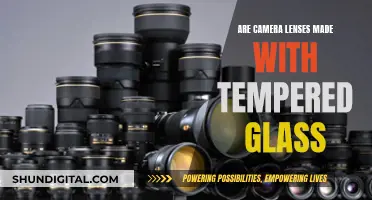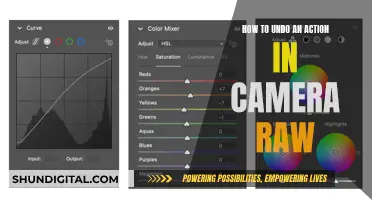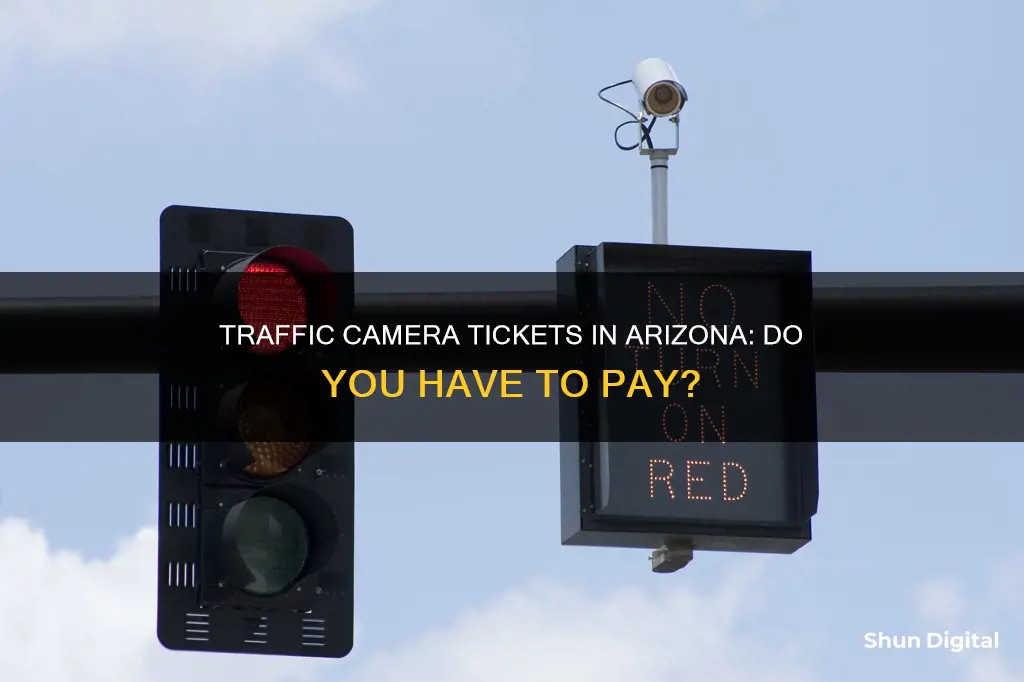
In Arizona, speed cameras are legal, and photo radar tickets are enforceable. However, there are ways to get around the fines. If you receive a photo radar ticket, you can ignore it, as it is not a certified court document unless it was sent and filed by the court. If you are served with a ticket, you will be responsible for the service fee, and you will have to pay the fine or fight the ticket in traffic court.
| Characteristics | Values |
|---|---|
| Are traffic camera tickets legal in Arizona? | Yes |
| Do you have to pay traffic camera tickets in Arizona? | It is advised not to ignore a citation. If you receive a ticket, you have 90 days to sign a waiver and send it back with a check. However, under Arizona state law, a ticket needs to be delivered in person for your response to be mandatory. |
| What happens if you ignore a traffic camera ticket in Arizona? | Failure to respond to a served violation can result in a license suspension. Driving with a suspended license can cause you trouble, including 6 months in jail and a fine of $2,500. |
| What are traffic camera tickets? | Also known as the Red Light Camera Enforcement Program, traffic camera tickets are generated by a network of traffic cameras that take photos of vehicles under certain conditions. They snap a photo if their sensors detect motion during a red light or sense anything over the speed limit. |
What You'll Learn

You don't have to pay if it's not a certified court document
If you receive a notice of a traffic violation in the mail, the first thing to check is whether it was sent by the court. If not, it is not a certified court document and you are not legally required to identify anyone in the photo or respond to the notice.
However, if you ignore the notice, the photo radar company can impose fees if the fines are not paid by a certain date. If the county court then files the violation, a process server can be employed to serve the citation. This can be done by physically handing the document to an individual or someone of "reasonable age" in the household (14 years or older). Alternatively, a court order may allow the process server to get the documents certified and tape them to your door, or leave them in plain view at your address.
If you are served with the ticket, you will be responsible for the service of process fee, which is typically around $40-$100. You then have two options: pay the ticket or fight it in traffic court. If you choose to fight it, you can dispute the citation if you have evidence that you were wrongly ticketed. However, the cost of fighting a ticket can sometimes be more than the ticket itself.
Browning Trail Cameras: Where Are They Manufactured?
You may want to see also

You can fight the ticket in court
If you believe you've been wrongly issued a photo radar ticket, you can choose to fight it in court. Here's a step-by-step guide on how to do this:
Step 1: Examine Your Ticket
Check the date, time, and location of the ticket. Make sure that you were the one driving the car when the ticket was issued. If someone else was driving, you cannot be prosecuted. Understand the specific violation you've been cited for and the associated penalties. Review any photos that came with the ticket to confirm that it's your car in the photo.
Step 2: Plead Not Guilty
You must plead not guilty if you want to dispute the ticket. You can do this by mail, online, or in person at an arraignment. Do this before the deadline, which is typically around 30 days from receiving the ticket.
Step 3: Request a Formal Hearing
When you plead not guilty, demand a full formal hearing or trial. This may include other hearings such as pre-trial hearings or mediation, which you should attend.
Step 4: Request Production of Documents
Call the local police department or relevant law enforcement agency to request copies of photos if they weren't included with your citation. Also, request full maintenance records for the camera, traffic light, and speed monitoring system to establish that they were regularly maintained and calibrated.
Step 5: Research Applicable Law
Look for cases in your city or county about traffic cameras and see if any appellate court decisions have ruled on the legality of traffic camera tickets. Research other possible defenses, such as the requirement for clearly visible warning signs or a necessity defense for speeding.
Step 6: Appear at Your Hearing
Arrive at the courthouse on the day of your hearing with copies of any documents you intend to use as evidence. Treat the judge and courthouse staff with respect. Listen quietly while the prosecutor presents their case, making notes on points you want to address.
Step 7: Present Your Defense
You can challenge the admissibility of the photograph as hearsay, assert your right to confront witnesses, and dispute the authenticity of the photograph if no one from the company that maintains the camera shows up to testify. Dispute the lack of evidence by arguing that the photos don't clearly show you driving or that the traffic light was functioning properly. Raise any other possible defenses you've found in your research.
Surveillance Cameras: Internet-Connected Security for Your Home
You may want to see also

Ignoring a ticket can result in a license suspension
While it may be tempting to ignore a traffic ticket, especially one that arrives through automated means like photo radar, doing so can have serious consequences. In Arizona, speed cameras are legal, and photo radar tickets are enforceable. If you believe you have been cited unjustly, you do have the option to fight the ticket. However, ignoring a ticket can result in a license suspension.
In Arizona, if you receive a photo radar ticket, it must be served to you within 90 days from the date of filing with the court. This means that simply mailing the citation to you is not enough. The ticket must be served in person or to someone of a "reasonable age" (14 years or older) at your residence. If you are served with a photo radar ticket and fail to respond, it will be marked as a failure to appear or respond (FTA). The infraction will be ruled as committed, go on your driving record, and be sent to the Department of Licensing (DOL).
If your ticket is marked FTA, you must pay the fine on the ticket, as well as an additional default penalty. If you fail to pay these penalties, the court will send them to a collection agency, and your license will be suspended until you resolve the FTA by setting up a payment plan. Additionally, if you accumulate multiple unpaid tickets, you may be issued a warrant for "Failure to Appear--Traffic" (FTA), which can result in further penalties and the loss of your license or even your vehicle.
Ignoring a traffic ticket can also lead to late penalties, community service, and even jail time. The longer you ignore the ticket, the more severe the consequences will be. Therefore, it is essential to take prompt action and either pay the ticket or contest it in court with the help of an experienced traffic attorney.
In summary, ignoring a traffic ticket in Arizona can have significant consequences, including license suspension, fines, and even jail time. It is always best to take appropriate action and resolve the ticket through the proper channels rather than risking further penalties.
The Ultimate Camera Companion: Understanding Battery Packs
You may want to see also

You can challenge a bogus process service
In Arizona, speed cameras are completely legal, and photo radar tickets issued by the counties are enforceable. However, if you believe that you have been cited unjustly, you have the option to challenge the ticket.
If you receive a photo radar ticket in the mail, it is not a certified court document, and you are not legally required to respond to it. However, if the county files the citation with the court, they have 90 days to serve you with the ticket. This is typically done by a process server who will physically come to your residence and serve you or someone of suitable age residing at your property.
If you believe that you have been served with a bogus process service, you can challenge it by taking the following steps:
- Stay calm and avoid any defensive or retaliatory behavior, as this may be used as evidence against you.
- Review your local laws and court procedures regarding service of process to understand your rights and the requirements for proper service.
- Gather evidence and notes about the incident, including the date, time, and any details that may be relevant.
- Consult with a legal professional, such as an attorney, to seek advice on your specific situation and to understand your legal options.
- If you have evidence that the process server did not follow the proper procedures or served the wrong person, you can file a motion with the court to challenge the service.
- Attend any court hearings or proceedings related to the case and present your evidence and arguments to the judge.
It is important to act promptly and seek legal advice if you believe you have been served with a bogus process service, as failing to respond within the required timeframe can result in negative consequences, such as fines or license suspension.
Covering Your Desktop Camera: Privacy and Security
You may want to see also

It's best to hire a lawyer if you have multiple citations
In Arizona, speed cameras are completely legal, and photo radar tickets issued by the counties are enforceable. However, if you have received multiple citations, it is best to hire a lawyer to seek legal representation.
While photo radar tickets are enforceable, they are not certified court documents unless sent and filed by the court. This means that you are not legally required to identify anyone in the photo or respond to the notice. However, if the county files the citation with the court, you will be required to pay the fines.
If you receive multiple citations, it is advisable to hire a lawyer to help you navigate the legal process and protect your interests. A lawyer can review the specifics of your case and provide guidance on the best course of action. They can also represent you in court and work to get the fines reduced or dismissed.
In some cases, you may be able to dispute the citations if you have evidence that you were not at fault. For example, if you can prove that you were not in Arizona at the time of the violation or that another person was driving, you may be able to persuade the court to dismiss the ticket. However, simply submitting a form indicating that you were not the driver is usually insufficient.
Hiring a lawyer can be particularly important if you are facing a license suspension, have multiple citations, or hold a commercial driver's license (CDL). A lawyer can help you understand your rights and options and work to protect your driving record and minimize any negative consequences.
While hiring a lawyer may incur additional costs, it can be a worthwhile investment to ensure you receive proper legal representation and guidance.
Troubleshooting Galaxy S6 Camera Focus Issues
You may want to see also
Frequently asked questions
Yes, you should never ignore a citation, no matter what. Photo radar tickets are entirely enforceable in Arizona.
Failure to respond to a served violation can result in a license suspension. Driving with a suspended license can cause further trouble, including 6 months in jail and a fine of $2,500.
If you feel you have wrongly received a ticket and have the evidence to prove it, you can dispute the citation. However, the cost of fighting a ticket can sometimes be more than the ticket itself.
Traffic camera tickets, also known as photo radar tickets, are generated by a network of traffic cameras that take photos of vehicles under certain conditions. They snap a photo when their sensors detect motion during a red light or sense anything over the speed limit.
If you receive a mailed ticket, or a notice of violation, you are expected to sign a waiver and send it back with a check. However, under Arizona state law, a ticket needs to be delivered in person for your response to be mandatory.


